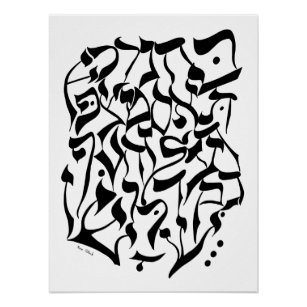We are embarking, for this and the next week, on what is called “the Shechinah unit”. That spans this week’s portion, Terumah, and the next, Tetzaveh. Both of those portions have the first description of the Mishkan, the Tabernacle, and the unit begins and ends with “they will make Me a mishkan, and I will dwell among them.” So this exercise of constructing the Mishkan is to have God’s presence, the Shechinah, being felt among the Jews. And please notice that the text does not say that God will dwell in the Mishkan, but rather that God will dwell among the people of Israel.
Terumah means offering, and our portion opens with vayikechu li terumah – and they will take for Me an offering. Now, the word vayikechu, they will take, has a root that connects with something we sing the end of the Torah service: Ki lekach tov natati lachem, torati al ta-azovu. This is just before “etz chayim hi”. Lekach, connected to vayikechu, means portion. I gave you a good portion, the text says, do not abandon My Torah.
That is an important connection for most of the hasidic rebbes. Because, of course, how do we, modern Jews, talk about the Mishkan, the Tabernacle? How do we make these many verses something significant? And this connection is not a connection only made by the hasidic masters, but some midrashim will make that connection as well. There is something that the writers of the midrash and the hasidic rebbes both share, and we share with them, which is a Judaism without a Temple. If the Tabernacle and later the Temple were a way of bringing down God’s Shechinah into the world, how do we do it now, without a physical space?
We do that through studying Torah, the lekach tov, the good portion. And the Sefat Emet, whose real name is Yehudah Aryeh Leib Alter, the rebbe of Gur, will begin by reminding us that lekach also means acquisition. And he says: look how different Torah is from other acquisitions. When we exchange something, and I produce beans and you cloth, I give you beans and you give me cloth, we exchange and both win and lose. We get what we want, but we lose what we produced. Torah is different. When I know a piece of Torah, and you know a piece, and we share, we both continue with what we have, and we both gain.
And here lies another fundamental way of looking to the world and to people: every one of us has a specific Torah to teach and to learn in this world. We are not an accident. Not a single one of us is. Just as we are individuals, so is our specific Torah. And yet, says the Sefat Emet, Torah is what joins all of the Jewish people together. When I learn and when I teach, and when you teach and when you learn, we become one people. That is how we find peace, according to the Sefat Emet. Peace is actively learning with one another, with an open heart, looking at one another’s words, thoughts and actions and learning Torah through them. Peace, shalom, is also seen as one of God’s names.

You know that God in the Jewish tradition has many names. One of them is peace. And peace, for the Sefat Emet, is not attained if you are in your corner, and I am in my corner, and we know we disagree and we are both silent. That is something more like a stalemate, or a truce, but it is not peace. Peace – and God’s presence – can only come if we join together to learn. If we are open to be challenged and changed by that encounter. It is when we see each encounter not as a zero-sum game, not as a win-lose, but as a win-win. We both are challenged and changed and grow.
This process of learning Torah, with both a capital and a lowercase letter, is what brings us together as a people. That is the bringing of God’s presence in the world. It is when we internalize both that we are valued, that we have our Torah, and that others have value, and so does their Torah. And we go one step further, which is learning from one another. There are, the Sefat Emet reminds us, seventy faces of the Torah. And if we read closely the list of the people that came to Egypt, we read that they were shiv’im nefesh, usually translated as “seventy souls”, but that translation washes over the obvious Hebrew problem: the text actually says “soul”, in the singular. We are supposed to be, in our individuality, still a people together, still one soul. We only become a people when we embrace all the faces of Torah.
Ki lekach tov natati lachem – I gave you all a good portion. Take an offering for Me – each person, according to their ability, desire, and Torah that they came to learn and teach in this world. That is how we bring down the Shechinah, God’s presence, a task that is now both simpler and more complex in a world without a Temple. Shabbat Shalom.
